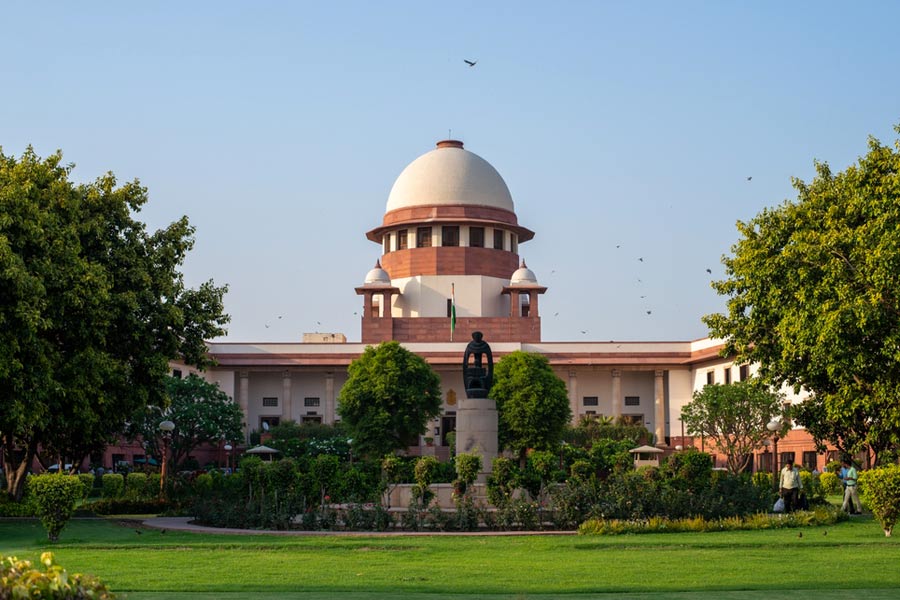The Supreme Court on Friday said criminal cases should not be registered against journalists merely because their writings are perceived as criticism of the government, ruling that such action violates their fundamental right to free speech.
A two-judge bench passed this order while staying coercive action against journalist Abhishek Upadhya, who faces criminal prosecution by the Uttar Pradesh government for writing on caste dynamics in the appointment of bureaucrats in the state.
“In democratic nations, freedom to express one’s views (is) respected. The rights of the journalists are protected under Article 19(1)(a) of the Constitution of India,” the bench of Justice Hrishikesh Roy and Justice S.V.N. Bhatti said.
“Merely because writings of a journalist are perceived as criticism of the government, criminal cases should not be slapped against the writer.”
The court on Friday heard advocate Anoop Prakash Awasthi, who appeared for the journalist. It issued a notice to the state government, seeking a reply in four weeks.
Upadhya has asked the court to quash the criminal charges registered against him under the rechristened sections 353(2) (statements conducive to public mischief), 191 (imputations, assertions prejudicial to national integration), 302 (uttering words, etc, with deliberate intent to wound religious feelings) and 356(2)(defamation) of the newly enacted Bharatiya Nyaya Sanhita and Section 66 of the IT Amendment Act (electronic dissemination of such information).
The journalist had in his article, “Yadav Raj vs Thakur Raj (or Singh Raj)”, said that Thakurs now enjoyed a dominant position in the bureaucratic hierarchy of Uttar Pradesh. Chief minister Yogi Adityanath happens to be a Thakur.
An FIR was lodged against Upadhya on a complaint from a man named Pankaj Kumar that, the journalist says, described Adityanath as an “incarnation of God”.
After the article was published, Upadhya’s petition says, former chief minister and Sanajwadi Party president Akhilesh Yadav posted it on his X handle and complimented the journalist.
Following this, Upadhya claimed, he received death threats, including those of death in an “encounter”.
When he lodged a complaint with the state director-general of police on his X handle, he says, the police used their X handle to caution him against spreading “rumours or misinformation”. The force allegedly said this could cause instability in society and lead to legal action against him.
While directing that no coercive action be taken against Upadhya until further orders, the bench asked the journalist to remove the name of Adityanath as respondent. His advocate complied with this immediately.










